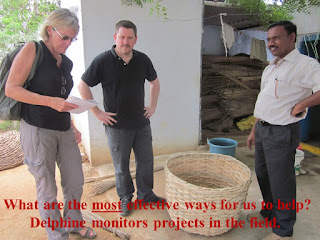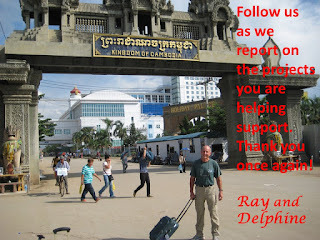Please click here to be redirected to our new website.
The Bribie Island Butterfly House will exist to:
Provide lasting friendships and a sense of purpose amongst our Volunteers.
Provide visitors with quality education, enjoyment and a place of peace.
Uplift the extreme poor of this world via donations to charities.
Here at the
Bribie Island Butterfly House, we would like to help others less fortunate than ourselves. We recognise that in our ‘global village’, there is an ever-present need to help
‘the poorest of the poor’ - people in extremely oppressive and degrading circumstances – families existing on just one meal a day, drinking dirty unsafe water and
earning less than $2 a day.
Who are these people? Our media today shows us fleeting snapshots of victims of natural disasters and abuse and AIDS, refugees, asylum seekers, starving and dying children, and so many others that it is too easy for our hearts and minds to become hardened and desensitised to what we see and hear.
But the need is still there, and it’s growing day by day. Unfortunately the whole world, developed and undeveloped, is engulfed in a huge amount of
greed and corruption which stops undeveloped countries from reinvesting the majority of their wealth from natural resources etc back into their own people. The same greed hinders developed countries from caring enough to substantially share their skills and finances with our poorer brothers and sisters.
Two of the
United Nations priority concerns are:
1. The provision of
clean water and sanitization. Tens of thousands of children die every day from water borne diseases, and this can be prevented!
2. The provision of methods of
self-sustainability for the ‘poorest of the poor’ in our world. eg microfinance.
Today, most developing countries have NGO’s (non-government organizations) working to drill bores and sink wells in an effort to stop people from dying. But much more still needs to be done.
A simple water filter or a clean water supply close-by a village brings enormous change eg: more time for women to work in the fields and for children to go to school instead of carting water long distances, men healthier and fitter for work, better personal hygiene and clean cooking utensils and clothing, better quality drinking water, irrigation for vegetable gardens etc. A greatly improved way of life, much of which we take for granted.
It is now recognised that
the most effective method to assist developing nations lift their people out of grinding poverty and
reach self-sustainability, is the immensely successful
tool of ‘microfinance’.
In a nutshell this is how it works:
The same $100 (approx) is loaned and re-paid, then re-loaned and re-paid, over and over to people. Most loans are
given to women as they have been shown in most cases to have more determination to make their businesses a success
for the sake of their children. The multiplication effect on the numbers of people helped is staggering.
Great advances have been made in this field over the last four decades or so by entrepreneurial NGO’s (non-government organisations). Both large organisations and small grass-roots ones are now set up and are well experienced. Whether you’re a large corporate body, an individual or a small community group such as the Bribie Island Butterfly House, we can all be involved in giving financial support.
One small loan will give a life-changing opportunity to an extremely poor family – and then the ripple effect (or butterfly effect) will start, and never stop.
As a visitor, volunteer or financial supporter of the Bribie Island Butterfly House you are helping to give poor children across the world the chance to go to school and live a happy, healthy life just like you. Thank you for helping provide clean water and microloans to desperately needy people. They would like us to thank you on their behalf also…..
Thank you soooooo much!
If you have any further questions, please contact Delphine Archer on 0418 964 333 or Ray Archer on 0409 491 419 as they have many years of experience working with microfinance and clean water projects for the extreme poor in developing countries.




















